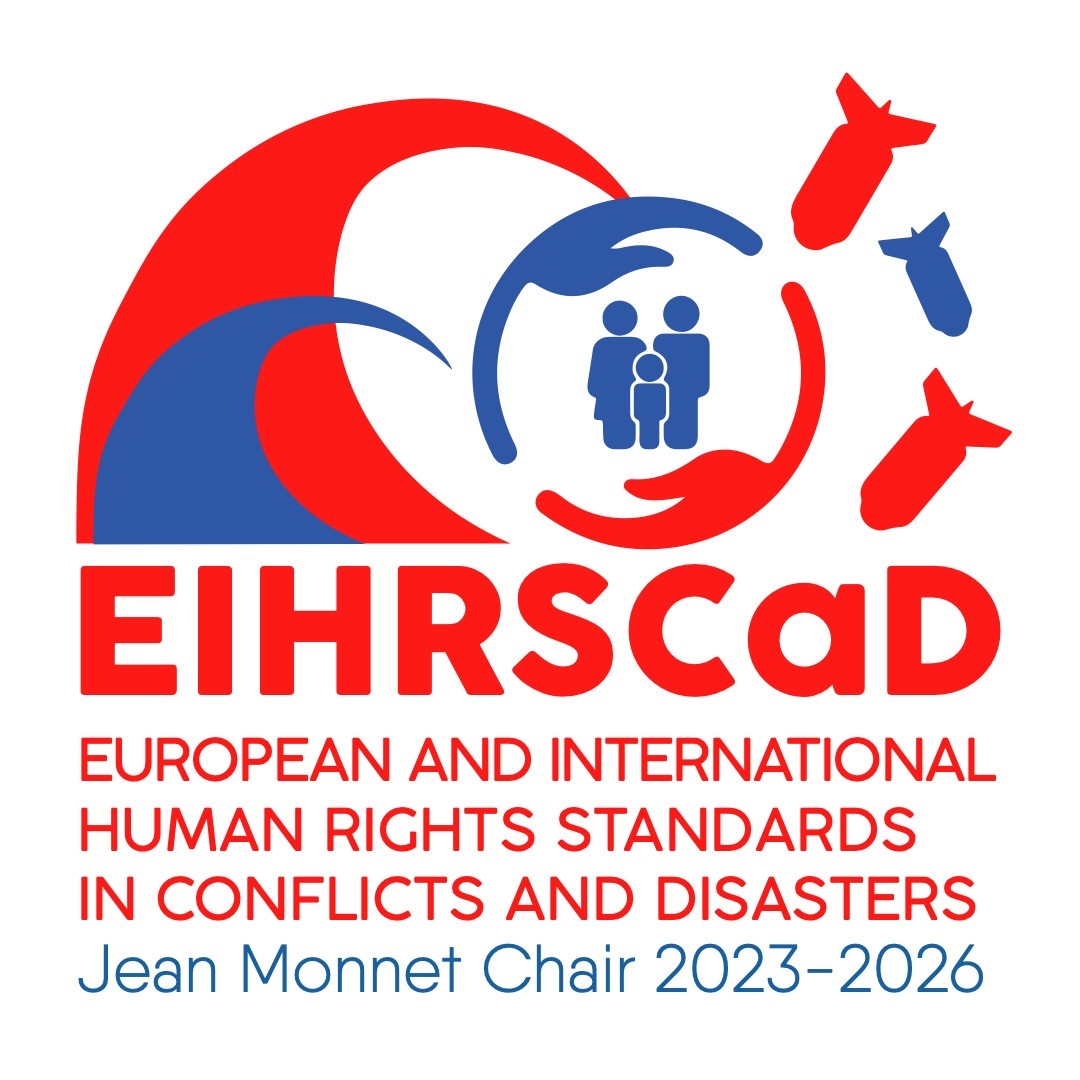European and International Human Rights Standards in Conflicts and Disasters

- Focus area Human rights, conflict management, development cooperation & migration
- Venue Scuola Superiore Sant'Anna - Pisa (Italy)
- Application deadline 05.06.2025
- Period -
- Registration URL APPLY NOW
- ECTS Credits 2
- Training hours 38
- Maximum Number of Participants 25
- Tuition fees € 50,00 for graduate students / € 100,00 for PhD students / € 250 for professionals


Application deadline
- 1st round: April 10th 2025
2nd round: June 5th 2025
Candidates who need a VISA to enter Italy are strongly encouraged to apply for the first round of selection (deadline 10th April 2025), to allow sufficient time to process their requests. According to Article 9, last paragraph, of the Call for Application, if for any reason (including failure to obtain a visa) a participant is not able to attend the course, the enrolment fee paid will not be reimbursed.
Course description
In recent years, the impact of natural and technological disasters, as well as of other emergencies, has been constantly on the rise, both within and outside the EU. The recent COVID-19 pandemic is the most evident example of this trend. At the same time, Europe is once again experiencing the devastating effects of armed conflicts within its borders.
Looking at these phenomena through a legal lens, it is widely acknowledged that conflicts and disasters heavily impact the enjoyment of the human rights of the affected communities. Humanitarian organizations insist that human rights principles should be more thoroughly integrated into conflict and disaster management policies in order to strengthen prevention, response, recovery, and accountability, while increasing the protection of the affected individuals and communities. However, efforts to disseminate human rights standards applicable in conflict and disaster settings have been limited, including in Europe. The intensive course on European and International Human Rights Standards in Conflicts and Disasters (EIHRSCaD) aims at addressing these gaps.
The Course is offered as part of the training activities envisaged by a Jean Monnet Chair co-funded by the European Union. For additional information, please visit the project’s website at: https://eihrscad.santannapisa.it/
Course target
The course is intended for graduate and post-graduate students, research fellows and other academics, practitioners working in humanitarian assistance or for national and international organizations, NGOs and other actors active in this field (ICRC, IFRC, national Red Cross and Red Crescent Societies, etc.). Applicants must have a sound working knowledge of English.
Training objectives
• Provide participants with a sound knowledge of the legal frameworks and principal actors relevant to humanitarian assistance activities in conflict and/or disaster settings, and of the role of human rights in the prevention and response to natural and technological disasters, as well as to armed conflicts.
• Raise awareness of the critical role of human rights in conflict and disaster settings, and therefore favour a more human rights-sensitive approach to their management.
• Offer a solid understanding of the specific needs of vulnerable groups affected by conflicts and disasters.
Teaching methods
The teaching methodology will be characterized by a combination of frontal lecturing and more interactive training techniques (case study solving, etc.).
Participants will have access to online resources ahead of the sessions to favour their active participation during classes and improve the learning experience.
Course programme
The Course is divided into 5 sub-modules, one for each day of classes:
- Introduction to International Human Rights Law (IHRL), International Humanitarian Law (IHL) and International Disaster Law, providing a general introduction on the relevant legal frameworks and addressing the primary role of the affected State in conflict and disaster settings.
- Actors in Humanitarian Assistance and Disaster Management, focusing on non-State actors (UN, EU, IFRC, NGOs) that have a role in humanitarian assistance and disaster management activities, especially in those related to human rights protection.
- Protection Issues, shedding light on the notion of ‘vulnerability’ and exploring the specific protection needs of vulnerable segments of the population.
- Applying Human Rights in Disasters and Armed Conflicts, dealing with concrete human rights standards applicable to conflict and disaster settings, and describing the legal duties they impose on States and non-State actors.
- Human Rights, Disaster Prevention, and the Repression of International Crimes, addressing the interplay between IHRL, IHL and other branches of international law that contribute to preventing and mitigating the effects of conflicts and disasters, and to establishing accountability for violations of international norms.
How to apply
Applications must be submitted, exclusively online, through the link provided in this page.
A tutorial on how to register and submit the application is available for download in the “Attachment” box on this page.
Course fee
Professionals working in the field of human rights and/or humanitarian assistance in conflict and disaster settings will be required to pay a fee of € 250,00.
PhD students will be required to pay a fee of € 100,00.
Other participants (graduate students enrolled in a Master programmes, etc.) will be required to pay a fee of € 50,00.
The fee includes lunch on class days.
Attendance certificate
Participants will be required to pass a final exam in order to obtain 2 university credits (ECTS).
Participants attending at least 80% of the classes will be anyhow awarded a certificate of attendance.
